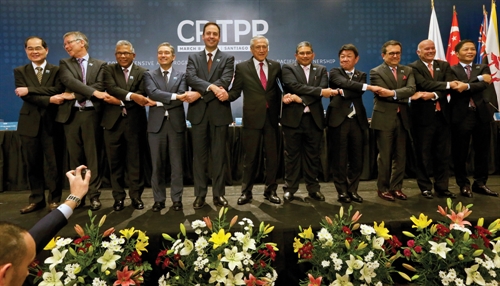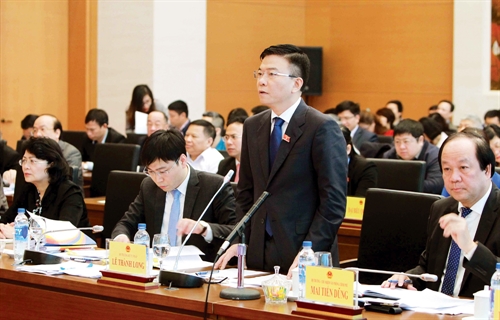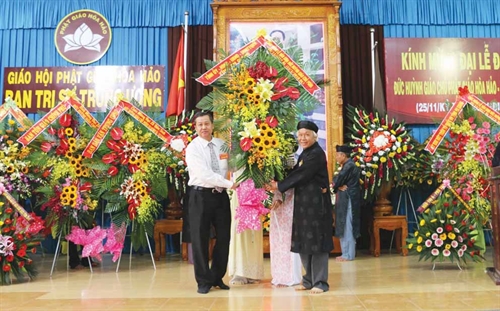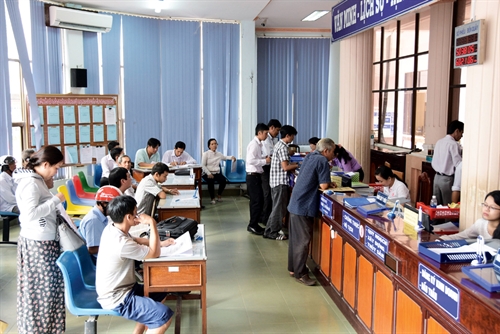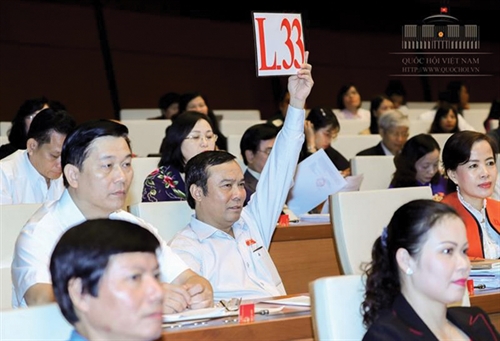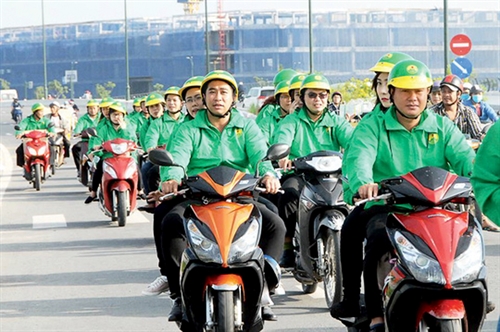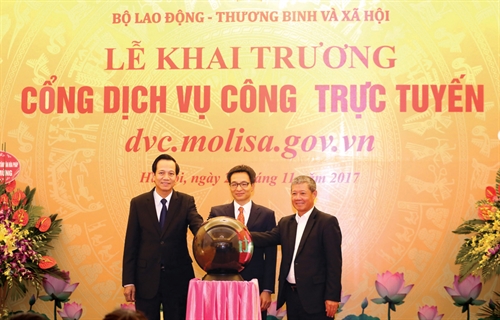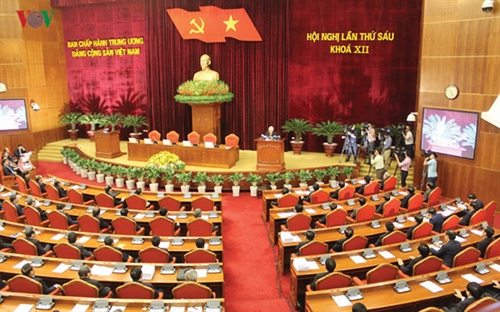The 2017 Fisheries Law has provided a broad legal framework for enforcement and cooperation with regional countries and fisheries organizations in fighting illegal, unreported and unregulated (IUU) fishing. This article highlights the Law’s provisions to show Vietnam’s resolve in this fight.
Assoc. Prof. Dr. Nguyen Hong Thao
Vietnam National University, Hanoi
International law on illegal fishing
The scope and nature of illegal, unreported and unregulated (IUU) fishing are clearly defined in Article 3 of the United Nations Food and Agriculture Organization’s 2001 International Plan of Action to Prevent, Deter and Eliminate Illegal, Unreported and Unregulated Fishing (IPOA-IUU).
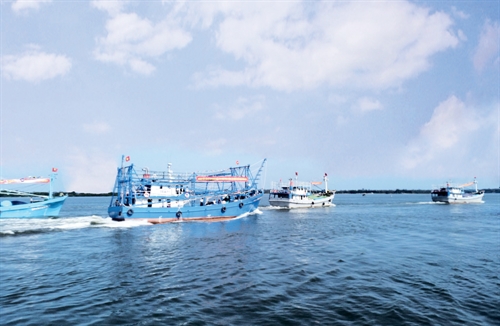 |
| High-capacity offshore fishing fleets of Nui Thanh district, Quang Nam province at Tam Hiep fishing port__Photo: Doan Huu Trung/VNA |
According to this Article, illegal fishing refers to activities:
* conducted by national or foreign vessels in waters under the jurisdiction of a State, without the permission of that State or in contravention of its laws and regulations;
* conducted by vessels flying the flag of States that are parties to a relevant regional fisheries management organization (RFMO) but operate in contravention of the conservation and management measures adopted by that organization or by which the States are bound, or relevant provisions of the applicable international law; or,
* in violation of national laws or international obligations, including those undertaken by cooperating States to a relevant RFMO.
Unreported fishing refers to fishing activities:
* which have not been reported, or have been misreported, to the relevant national authority, in contravention of national laws and regulations, or,
* which have been undertaken in the area of competence of a relevant RFMO and have not been unreported or have been misreported, in contravention of the reporting procedures of that organization.
Unregulated fishing include fishing activities:
* in the area of application of a relevant RFMO that are conducted by fishing vessels without nationality, or by those flying the flag of a State not party to that organization, or a fishing entity, in a manner that is not consistent with or contravenes the conservation and management measures of that organization; or,
* in areas or for fish stocks in relation to which there are no applicable conservation and management measures and where such fishing activities are conducted in a manner inconsistent with State responsibilities for the conservation of marine living resources under international law.
IUU fishing has exerted negative impacts on fisheries in the world and every country. It affects food safety and is linked with various types of transnational organized crime such as drug trafficking, destroys small-scale fisheries of developing countries, and helps corruption, money laundering and trade fraud.
The annual volume of illegal fishery products is estimated at 11-26 million tons worth USD 11-23.5 billion[1]. Over the recent 20 years, IUU fishing activities have become increasingly serious, requiring the international community to take prompt responses.
International documents on combating IUU fishing activities include:
- The 1982 United Nations Convention on the Law of the Sea (UNCLOS);
- The 1993 Agreement to Promote Compliance with International Conservation and Management Measures by Fishing Vessels on the High Seas;
- The 1995 United Nations Agreement for Implementation of the Provisions of the 1982 UNCLOS relating to the Conservation and Management of Straddling Fish Stocks and Highly Migratory Fish Stocks (UNSFA-1995);
- The 1995 Code of Conduct for Responsible Fisheries; the 2001 IPOA-IUU;
- The 2009 Agreement on Port State Measures to Prevent, Deter and Eliminate Illegal, Unreported and Unregulated Fishing;
- The 2014 Voluntary Guidelines for Flag State Performance; and other international plans of action.
Except the UNCLOS and UNSFA-1995, all the above documents just stop short at recommending responsible conducts of the states to conserve and develop fisheries resources and protect a sustainable marine environment. This shows that it is very difficult to create a binding legal framework on and coordinate the countries’ activities in combating IUU fishing.
As reported by Indonesia, as many as 5,000 foreign vessels illegally fish in its maritime waters every year, causing a loss of USD 3.1-5.2 billion.[2] This country is calling for greater regional and international efforts to crack down on IUU fishing. To prevent, deter and eliminate illegal fishing constitute a primary goal of the policy to transform Indonesia into a global maritime fulcrum between the Indian Ocean and Pacific Ocean as announced by President Joko Widodo. The policy introduces a series of stringent measures like imposing a one-year moratorium on IUU fishing by all foreign-built fishing vessels and a ban transshipment at sea, establishing taskforces on illegal fishing, sinking illegal fishing vessels, and issuing new control and surveillance rules.[3] According to Indonesia, concerted efforts of the entire region are needed as national policies alone cannot curb illegal fishing.
Causes of IUU fishing in Vietnam
Vietnam boasts a huge marine fishing potential. It now has around 100,000 vessels fishing in the internal waters and territorial sea of some 226,000 km2 and the exclusive economic zone of about 700,000 km2.[4]
Facing an exhausted quantity of coastal fishes, since 2007, the Vietnamese State has encouraged Vietnamese fishing vessels to go farther in the exclusive economic zone not yet delimited with neighboring countries. Nevertheless, as fishermen have insufficient legal knowledge, some vessels sail into the waters under the sovereign rights and jurisdiction of other countries, leading to the risk of violating IUU fishing regulations. The implemented measures fail to precisely forecast and properly respond to the changing situation. The dissemination of the law of the sea and foreign regulations to fishermen has not been carried out regularly and given due attention. Navigation, tracking and positioning devices are inadequate.
The 2003 Law on Fisheries (the 2003 Law) has not clearly stated the state policies on restricting coastal fishing, developing offshore fishing in a sustainable manner, and managing IUU fishing by foreign vessels. Neither does it regulate fishing activities of Vietnamese fishermen in the waters under the competence of RFMOs or the jurisdiction of other countries or territories.
This Law lacks specific provisions on a closed-loop supply chain management from fishermen, vessels, fishing licenses, ports, and anchorage areas to the origin of fished products and surveillance forces.
It fails to introduce policies for the development of facilities to build and renovate fishing vessels on an industrial scale or large-capacity fishing vessels. It has not yet regulated the licensing of fishing vessels based on fish reserves, fishing quota and vessel safety assurance, or management of some fishing activities without fishing vessels.
The Law also fails to decentralize local authorities to register fishing vessels and manage their crews, and regulate cases of vessel deregistration, export and import. All of these inadequacies have caused difficulties to the management of fishing vessels and the fight against IUU fishing.
Combat of IUU fishing under the 2017 Fisheries Law
Heightening responsibility for fisheries management
The 2017 Law on Fisheries (the 2017 Law), to be effective from early 2019, has specific provisions aiming to intensify the management of fisheries resources toward sustainable development, management of fishermen and fishing vessels as well as capture activities.
It also provides for fisheries resources surveillance forces, responsibilities of countries having ports, and trace ability of marine materials.
Article 5 states that capture of fisheries resources must ensure sustainable development and be based on fish reserves and linked with their protection, reproduction and development without affecting biodiversity. Fisheries management must follow a prudent, ecosystem- and scientific indicator-based approach. These provisions aim to redress limitations of the 2003 Law, clearly saying that coastal fishing will be limited and offshore fishing will be encouraged on the basis of the assessed reserves of fisheries resources. They also create conditions for managing cooperation on fishing activities in the exclusive economic zone of Vietnam in line with Article 62 of the UNCLOS. Vietnam should assess the allowable catch, determine the fishing capacity of local vessels and grant fishing quotas to each vessel. If finding that it does not have the capacity to harvest the entire allowable catch, it should permit fishermen of other States to harvest the surplus on the basis of signing fisheries cooperation agreements and setting fishing quotas (Article 55). At the same time, Vietnam will have to promote the signing of similar fisheries agreements permitting its fishermen to conduct quota-based fishing in the maritime waters of other States (Articles 53 and 54 of the 2017 Law).
Article 7 strictly prohibits IUU fishing in addition to other illegal acts like destroying fisheries resources, aquatic ecosystems, concentrated breeding areas, areas where juveniles of aquatic species concentrate, and habitats of aquatic species.
Article 60 provides a specific list of illegal fishing activities. They include fishing without a license, or in marine areas where or in the period during which fishing is prohibited; fishing and transporting banned aquatic products; and using banned fishing gears.
Fishing aquatic species of a size smaller than prescribed; fishing endangered species; fishing in excess of the allowable catch; fishing outside permitted marine areas or after the fishing license expires; and fishing in the waters under the jurisdiction of other countries or territories are also regarded as illegal.
Other illegal activities include failing to make or submit fishing logbooks or reports; importing, exporting or transiting via the Vietnamese territory illegally fished products; using stateless vessels or vessels flying the flag of a non-member state to fish in the waters under the competence of a relevant RFMO; and using vessels to fish on the high seas in contravention of regulations.
Article 8 also clearly states the international cooperation obligation of Vietnamese fishermen and vessels in conserving and managing living resources on the high seas and migratory fish species under regulations of RFMOs as well as the UNCLOS, and in dealing with illegal fishing activities inside and outside the Vietnamese territory under relevant treaties to which Vietnam is a contracting party.
Management measures
First, fishing vessels, fishermen and fishing activities will be managed based on the national fisheries database. Foreign vessels that enter the maritime zones of Vietnam to fish will have to provide information to be updated in this database for management purposes (Article 9).
Second, the management of fishing activities and the fight against IUU fishing will be based on licenses. Grounds for determining fishing license quotas are the results of survey and investigation of fisheries reserves, changes in fisheries reserves, the total allowable catch, species to be harvested, and fishing areas.
Fishing license quotas will be announced and adjusted every 60 months, except when there appear changes in fisheries reserves (Article 49).
The Law stipulates the capacity of fishing vessels based on their length (m) but not on their tonnage waterline or capacity (60 CV or 90 CV) as previously prescribed. Fishing by vessels with the maximum length of 6 meters or more will be subject to licensing (Article 50).Tracking devices are required for fishing vessels of 15 meters or more in length.
Compared to the 2003 Law, a fishing license has many novel details, particularly registration number, name, call sign, and code of the International Maritime Organization for offshore fishing vessels.
To enhance the fight against IUU fishing, the 2017 Law adds a provision (Article 50.5.b) saying that a fishing license will be revoked when its holder conducts illegal fishing outside the maritime zones of Vietnam. The Ministry of Agriculture and Rural Development (MARD) will grant and revoke fishing licenses for Vietnamese entities fishing outside the maritime zones of Vietnam. It is also assigned to grant and revoke licenses for foreign entities fishing in the maritime zones of Vietnam.
According to Section 2, Chapter IV of the 2017 Law, fishing outside the maritime zones of Vietnam may be conducted on the basis of fishing quotas granted to Vietnam by other countries under the agreements signed in accordance with Article 62 of the UNCLOS or identified by a relevant RFMO. The MARD will grant a fishing license when all the requirements on vessel master, crew, vessel and equipment are satisfied. Fishing vessels and workers on board must strictly observe the regulations of the relevant RFMO and of the country or territory that grants fishing quotas (Articles 53 and 54). Vessel masters must carry along the originals or certified copies of relevant papers granted by Vietnam and the country or territory where their vessels operate.
Meanwhile, foreign vessels will be allowed to fish in the maritime zones of Vietnam when they fully meet the conditions set out in the Law. First, there is a relevant fishing agreement or treaty to which Vietnam is a contracting party. Second, they are not on the list of IUU fishing vessels. Third, they must possess such papers as fishing license, investment registration certificate or fishing cooperation project, vessel registration certificate, vessel safety certificate, radio frequency and equipment use license, and necessary tracking devices. In addition, crewmen on these foreign vessels must obtain approval from the Vietnamese Ministry of Public Security and Ministry of National Defense (Article 55).
Article 56 provides the grant, extension, re-grant and revocation of licenses for foreign vessels to fish in the maritime zones of Vietnam. Particularly, a license will be extended only when its holder has submitted adequate fishing logbooks or operation reports (Clause 3.b). It will be revoked when its holder operates in contravention of the license; or aquatic products on board the vessel are illegally fished (Clause 5). A foreign fishing vessel that wishes to terminate operation before the fishing license expires must send a written notice to the MARD at least seven working days in advance.
At the same time, Vietnam will also intensify the management of fished products by sending supervisors to work on board foreign vessels for supervising fishing activities, investigating fisheries resources, and providing technical training and transferring technologies in fisheries. Foreign vessels must comply with requests of these supervisors and be inspected and controlled by Vietnamese authorities (Article 58).
The third measure is port-based management. The Law requires foreign vessels to enter the registered port and send a notice to the MARD at least seven working days before their entry and carry out exit and entry procedures under Vietnamese law.
Article 83 specifically says that a foreign vessel may enter only the fishing port stated in its license or the fishing port approved by the MARD. At least 24 hours before a vessel enters the fishing port, its master must notify the port authority of the name, call sign, registration number, size and type of the vessel,its fishing capacity and species to be fished, and the licensing agency
Ports also play an important role in supervising the origin of fished products. Article 57.2.h requires vessels to sell fished products only in Vietnam, unless they can produce export contracts. Vietnamese authorities will grant certificates of origin of products fished in the maritime zones of Vietnam for fishing vessels that do not violate IUU fishing regulations (Article 61). Vietnamese who fish overseas are also required to have such certificates for their products.
Article 81 states that the head of a fishing port authority is competent to certify the origin of fished products according to regulations and receive fishing logbooks and reports from fishing vessels that enter the port. He is entitled to refuse to permit the loading and unloading of illegally fished products and report it to competent authorities for handling.
The fourth management measure is based on reports and logbooks. The Law requires the recording of trip-based fishing logbooks for foreign fishing vessels and making of trip-based fishing reports for foreign vessels engaged in survey and other activities. These logbooks and reports may be made in Vietnamese or English.
The fifth measure is to reorganize the fisheries resources surveillance force and intensify inspection and supervision activities. The Law says that a fisheries resource surveillance force will be built to enforce Vietnamese laws and relevant treaties on capture and protection of fisheries resources to which Vietnam is a contracting party. Acting as the key force in fighting IUU fishing, this force will be organized at central and provincial levels and well equipped and trained in regulations on IUU fishing and marine cooperation (Articles 87, 88 and 89).
With the above provisions, the 2017 Law has provided a broad legal framework for Vietnam to fight IUU fishing on its own and in collaboration with regional countries and RFMOs. The timely passage of the Law will help the country avoid the EU’s red card for IUU fishing, increase the output of sea products and export of sea products of lawful origin and develop its fisheries in a sustainable manner, contributing to stabilizing the international maritime order and promoting the country’s economic development in combination with firmly maintaining national security and defense.-
FAO, Illegal, Unreported and Unregulated (IUU), 2016.
